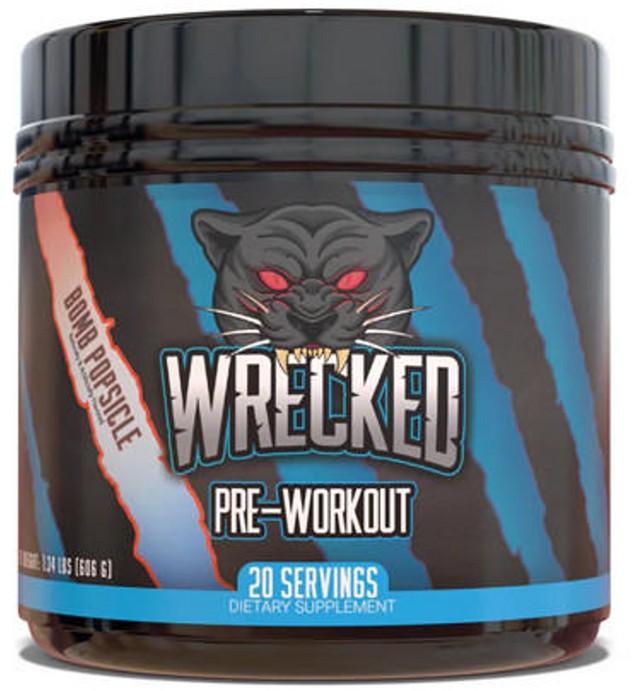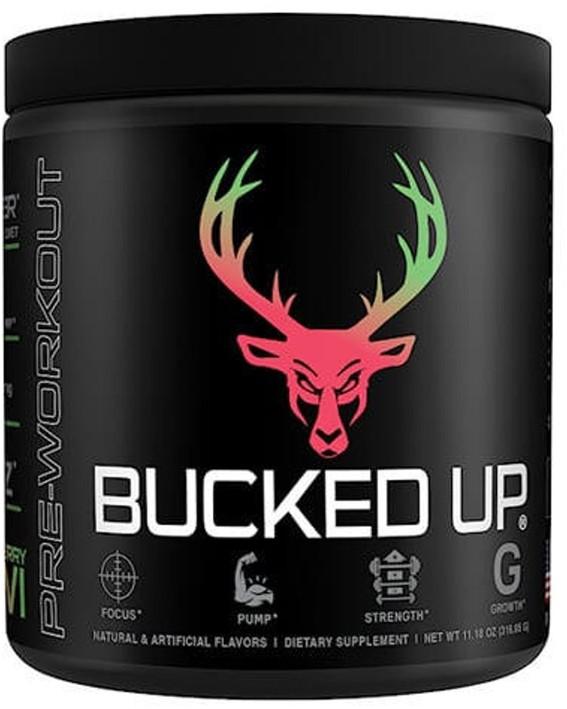Optimizing Output: The Importance of Pre-Workout Nutrition in Fitness

By
Shahbaz Ahmed - February 16, 2024
.png)
Pre-Workout Nutrition
In the dynamic realm of fitness, where the pursuit of optimal performance is paramount, the role of nutrition cannot be overstated. Athletes, fitness enthusiasts, and individuals engaging in physical activities often strive to maximize their output during workouts. While the importance of post-exercise nutrition is well-acknowledged for recovery, the significance of pre-workout nutrition is a crucial, yet sometimes overlooked, component of achieving peak performance.
This article delves into the intricate landscape of pre-workout nutrition, exploring its fundamental principles, the impact it has on physical and mental performance, and practical strategies for individuals aiming to optimize their output in the gym or on the field. By understanding the science behind pre-workout nutrition and adopting tailored approaches, individuals can unlock their full potential and propel themselves toward their fitness goals.
Understanding Pre-Workout Nutrition
When it comes to optimizing your fitness routine, understanding pre-workout nutrition is a game-changer. This section delves into the definition and purpose of pre-workout nutrition, the key nutrients involved, and how it differs from other meal times.
De?nition and Purpose of Pre-Workout Nutrition
Pre-workout nutrition refers to the intake of specific nutrients before engaging in physical activity to enhance performance, energy levels, and recovery. The primary purpose is to provide the body with the necessary fuel to sustain intense workouts and promote better results. It acts as a strategic preparation, ensuring your body has the resources needed for optimal performance.
Key Nutrients Involved in Pre-Workout Nutrition
- Carbohydrates: Carbohydrates are the body's preferred source of energy, making them crucial for pre-workout nutrition. They are quickly converted into glucose, providing readily available fuel for muscles during exercise. Opt for complex carbohydrates like whole grains, fruits, and vegetables to ensure sustained energy release.
- Proteins: Proteins play a vital role in your supplement program by aiding in muscle repair and growth. While the emphasis is on carbohydrates for quick energy, including a moderate amount of protein can help prevent muscle breakdown during exercise. Lean protein sources like poultry, fish, and plant-based alternatives are excellent choices.
- Fats: While high-fat meals are not advisable directly before a workout due to their slow digestion, including healthy fats in your pre-workout nutrition plan can contribute to sustained energy. Avocado, nuts, and seeds provide a source of long-lasting energy without causing discomfort during exercise.
- Hydration: Hydration is often overlooked but is a crucial aspect of pre-workout nutrition. Dehydration can lead to decreased performance, fatigue, and muscle cramps. Ensure you are well-hydrated before starting your workout by consuming water or electrolyte-rich beverages.
Pre-Workout Nutrition Differs from Other Meal Times
Pre-workout nutrition differs from regular meals in terms of timing and composition. Unlike daily meals that focus on overall nutritional needs, pre-workout nutrition is designed to support immediate energy requirements. Key differences include:
- Timing: Pre-workout nutrition is consumed 30 minutes to 3 hours before exercise, depending on the type and intensity of the workout. This ensures that nutrients are available when needed during the physical activity.
- Composition: Pre-workout meals or snacks are typically smaller in size compared to regular meals to prevent discomfort during exercise. They are tailored to include a balance of carbohydrates, proteins, and fats, with an emphasis on easily digestible options.
Impact on Performance
Taking pre-workouts like wrecked pre workout and fine tuning your nutrition can play a pivotal role in enhancing various aspects of performance, including energy levels, endurance, stamina, and mental focus. Understanding its impact can significantly elevate your workout experience and results.
Enhanced Energy Levels
- Glycogen Replenishment: Glycogen, stored glucose in the muscles and liver, serves as a primary energy source during exercise. Pre-workout nutrition, particularly carbohydrates, helps replenish glycogen stores, ensuring a readily available muscle fuel source. This replenishment supports sustained energy levels throughout your workout, delaying fatigue and improving performance.
- Blood Sugar Regulation: Consuming carbohydrates before exercise helps regulate blood sugar levels, preventing fiuctuations that can lead to fatigue, dizziness, or even hypoglycemia during intense workouts. Stable blood sugar levels support consistent energy output and endurance, allowing you to push through challenging exercises effectively.


Improved Endurance and Stamina
- Protein Synthesis: Including protein in your pre-workout nutrition regimen promotes muscle protein synthesis, the process by which muscles repair and grow stronger after exercise. Amino acids from protein-rich foods or supplements provide the building blocks necessary for muscle recovery and adaptation, ultimately improving endurance and performance during subsequent workouts.
- Muscle Preservation During Exercise: Pre-workout nutrition helps prevent muscle breakdown during exercise, especially in situations where glycogen stores become depleted. Adequate protein intake, along with carbohydrates, supports muscle preservation by providing a continuous source of energy and minimizing the body's reliance on muscle tissue for fuel.
Mental Focus and Alertness
- Role of Specific Nutrients in Cognitive Function: Certain nutrients found in pre-workout foods and supplements play a crucial role in cognitive function, contributing to mental focus and alertness during exercise. For example, caffeine, commonly found in coffee or pre-workout supplements, enhances alertness and concentration by stimulating the central nervous system.
- Connection Between Mental and Physical Performance: Mental focus and alertness are closely linked to physical performance during workouts. Pre-workout nutrition strategies that incorporate brain-boosting nutrients, such as omega-3 fatty acids found in fish or nuts, support optimal cognitive function, allowing you to maintain focus and execute exercises with precision and e?ciency.
Timing and Composition
Timing and composition are critical factors in optimizing pre-workout nutrition. This section explores the optimal timing for pre-workout nutrition and how to balance macronutrients effectively to meet individual fitness goals.
Optimal Timing for Pre-Workout Nutrition
General Guidelines for Different Types of Exercises:
- High-Intensity Workouts: Consume a bucked up pre workout and a meal or snack 2-3 hours before the workout to allow for digestion and energy release. This timing helps prevent discomfort during intense exercise.
- Moderate-Intensity Workouts: Eating a smaller meal or snack 30-60 minutes before exercise can provide a quick energy boost without causing digestive issues. Opt for easily digestible options to minimize discomfort.
Personalization Based on Individual Factors:
- Metabolism: Individuals with faster metabolisms may require more frequent pre-workout meals/snacks to sustain energy levels during exercise.
- Digestive Sensitivity: Those with sensitive stomachs may need to experiment with different types and timing of pre-workout nutrition to find what works best for them.
- Training Schedule: Consider the time of day you typically exercise and plan pre-workout nutrition accordingly to ensure optimal energy levels during workouts.
Balancing Macronutrients for Maximum Effectiveness
Ratios of Carbohydrates, Proteins, and Fats:
- Carbohydrates: Aim for a moderate to high intake of carbohydrates to fuel muscles during exercise. A ratio of 3:1 or 4:1 carbohydrates to protein is generally recommended for pre-workout nutrition.
- Proteins: Include a moderate amount of protein to support muscle repair and growth. Lean sources such as chicken, fish, tofu, or beans are excellent choices.
- Fats: While fats should be consumed in moderation before a workout due to slower digestion, including small amounts of healthy fats can provide sustained energy. Opt for sources like avocado, nuts, or seeds.
Adaptations Based on Fitness Goals (e.g., Weight Loss, Muscle Gain):
- Weight Loss: Individuals aiming to lose weight may benefit from slightly lower carbohydrate intake in their pre-workout meals to promote fat burning. However, adequate energy levels must be maintained to support workout intensity.
- Muscle Gain: For those focused on muscle gain, a higher carbohydrate intake before workouts can help provide the energy needed for intense training sessions. Additionally, increasing protein intake can support muscle recovery and growth.
Common Mistakes and Pitfalls
Nutrition plays a pivotal role in optimizing your performance during workouts. However, even with the best intentions, many individuals fall prey to common mistakes and pitfalls when it comes to pre-workout nutrition. Being aware of these pitfalls can help you avoid them and maximize the benefits of your pre-workout meals or snacks.
Overlooking Hydration
Hydration is often underestimated in pre-workout nutrition but is crucial for optimal performance. Dehydration can lead to decreased endurance, impaired cognitive function, and increased risk of injury. Here are some common hydration mistakes to avoid:
- Not Drinking Enough Water: Many people don't drink adequate water before their workout, leading to dehydration. Aim to consume at least 16-20 ounces of water 2-3 hours before exercising.
- Neglecting Electrolytes: Electrolytes, such as sodium, potassium, and magnesium, play a vital role in maintaining hydration levels and muscle function. Incorporate electrolyte-rich foods like bananas, coconut water, and leafy greens into your pre-workout nutrition plan. Overconsumption of Caffeine: While caffeine can enhance performance, excessive consumption can lead to dehydration. Limit your intake and balance it with suficient water consumption.


Relying Solely on Supplements
In today's market, pre-workout supplements are readily available and heavily marketed as essential for maximizing performance. While supplements can be bene?cial, relying solely on them for pre-workout nutrition can have drawbacks:
- Lack of Whole Foods: Whole foods provide a wide array of nutrients that supplements cannot replicate. While supplements may offer convenience, they should not replace whole, nutrient-dense foods in your diet.
- Potential Side Effects: Some pre-workout supplements contain high levels of caffeine, artificial sweeteners, and other stimulants that can lead to adverse side effects such as jitters, insomnia, and digestive issues.
- Dependency: Depending solely on supplements can create a dependency and may hinder your ability to naturally fuel your body with wholesome, real foods.
Ignoring Individual Dietary Needs and Preferences
One size does not ?t all when it comes to nutrition. Ignoring your individual dietary needs and preferences can sabotage your pre-workout routine. Consider the following:
- Food Sensitivities and Allergies: Ignoring food sensitivities or allergies can lead to discomfort and infiammation, affecting your performance. Identify and avoid trigger foods that may cause adverse reactions.
- Personal Preferences: Your taste preferences, cultural background, and ethical beliefs should all be considered when planning your pre-workout meals or snacks. Choose foods that you enjoy and that align with your lifestyle.
- Nutrient Timing: Ignoring your body's natural rhythms and nutrient timing needs can impact your performance. Experiment with different pre-workout meals and timing to find what works best for you.
Conclusion
In conclusion, optimizing pre-workout nutrition is a crucial aspect of achieving peak performance in fitness endeavors. By understanding the science behind pre-workout nutrition and adopting tailored approaches, individuals can unlock their full potential and propel themselves toward their fitness goals.
It is imperative to recognize the significance of hydration in pre-workout nutrition. Dehydration can significantly impair performance, making it essential to consume adequate fiuids and electrolytes before exercise. Neglecting hydration can lead to decreased endurance, impaired cognitive function, and increased risk of injury. Additionally, while pre-workout supplements can offer convenience and potential benefits, relying solely on them may have drawbacks.
Whole foods provide a wide array of nutrients that supplements cannot replicate, and excessive reliance on supplements can lead to dependency and potential side effects

By
Shahbaz Ahmed - February 16, 2024
.png)
.jpg)
.jpg)


Leave a comment